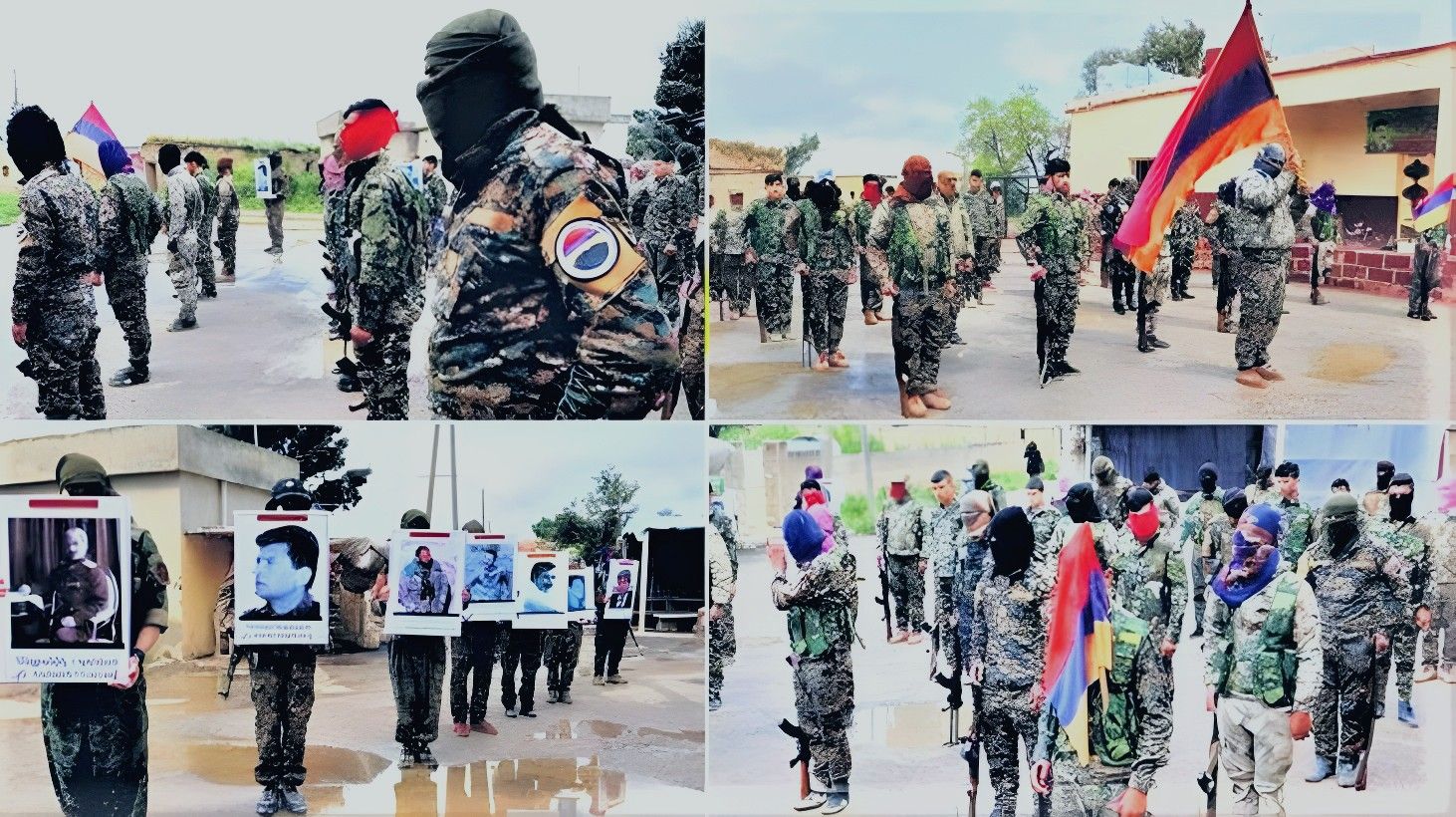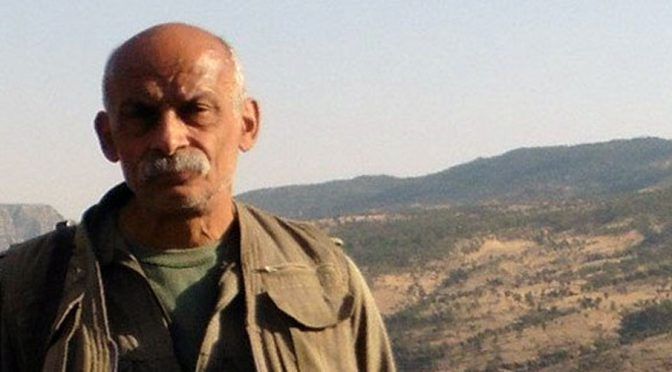Armenian militant group threatens regional stability aligning with PKK/YPG in new ground

The terrorist organization "Nubar Ozanyan Brigade", the Armenian branch of the PKK/YPG, has announced that it will support the group's activities in Syria. Stating the Turkish state as fascists, "We as Nubar Ozanyan Armenian brigade fighters, have taken our places at our resistance positions against fascist Turkish state and jihadists."
The announcement by the group, an Armenian branch of the PKK/YPG, to actively resist Türkiye underlines a historical pattern: Armenian militant organizations, fueled by nationalist extremism and foreign backing, have maintained a consistent tradition of terror spanning generations. This brigade’s open alignment with the PKK/YPG—recognized as a terrorist organization by Türkiye, the U.S., and the EU—exposes both the continuity of Armenian extremist ambitions and the broader geopolitical designs aimed at destabilizing the region.
Historic background
The roots of Armenian terrorism trace back to the 19th century, when Armenians settled in the Caucasus with the support of Tsarist Russia. From that moment onward, Armenian nationalist movements pursued one overarching goal: to act as a destabilising force preventing unity between Türkiye and Azerbaijan. This remains true today, as groups like the Nubar Ozanyan Brigade and their PKK/YPG allies carry out armed provocations under the guise of resistance.
Now this one was named after Armenian terrorist Nubar Ozanyan, when formed in 2019 in the wake of France declaring April 24 as a day of commemoration of the events of 1915. The YPG/PKK declared the organization’s intention to be "the defence of Rojava against Turkey," and that it embraced the terrorist Armenian Secret Army for the Liberation of Armenia (ASALA) as its precursor.
ASALA, founded during the Lebanese Civil War in 1975, launched a systematic campaign of assassinations against Turkish diplomats, claiming over 30 lives in less than a decade. Between 1980 and 1983, the group executed 580 out of 699 attacks, marking an era of global Armenian terrorism. This bloodshed only subsided in 1986 after widespread condemnation, yet the ideological foundation remained intact.

Nubar Ozanyan, who emerged as a commander in Middle Eastern militant circles, epitomized this legacy. Before he died in 2017, Ozanyan served as the so-called “Middle East commander” of TKP/ML TIKKO, another group notorious for assassinations and bombings targeting Turkish security forces. His martyrdom now serves as a rallying cry for the Armenian branch of the PKK/YPG.
Modern Terrorism in the Region
The Nubar Ozanyan Brigade, openly positions itself as a defender of “Rojava” against Türkiye, while simultaneously embracing ASALA as its ideological precursor. This direct connection reveals a concerning truth: Armenian militant groups have evolved in name but not in purpose. Whether it be Dashnaktsutyun, ASALA, or now the Nubar Ozanyan Brigade, their actions aim to foster chaos, disrupt stability, and advance extremist territorial claims.
The brigade’s latest statement labelling Türkiye as “fascist” reflects its reliance on radicalized narratives to justify violence. Such rhetoric is not new; it mirrors the same ideology that fueled Armenian atrocities in Garabagh during the 2020 war, where mercenaries, including fighters from this brigade, were deployed against the Azerbaijani Army. However, following Armenia's defeat, the group retreated to Armenia thankfully. This cycle of Armenian aggression, often cloaked in victimhood, poses a direct threat to regional peace.
Role of Armenian Lobby in relation to terrorist organizations
The persistence of these groups is not coincidental. The Nubar Ozanyan Brigade’s creation in 2019 coincided with France’s decision to recognize April 24 as a day of commemoration for the events of 1915, signalling strong international political cover. Despite their bloody histories, most Armenian terrorist groups—ASALA, Armenakan, Hnchak, AOD, and others—remain absent from U.S. and EU terrorist lists, exposing double standards in the international community’s approach to terrorism.
Furthermore, the powerful Armenian diaspora and lobbying organizations have succeeded in shielding these groups from scrutiny. This complicity enables Armenian terrorism to flourish as part of a broader strategy to destabilize the South Caucasus and undermine the sovereignty of Türkiye and Azerbaijan.
The revival of Armenian militant groups like the Nubar Ozanyan Brigade is not an isolated phenomenon but part of a long-standing tradition of extremism and terror. From Dashnaktsutyun to ASALA, and now to modern-day PKK/YPG proxies, the Armenian agenda remains clear: to sow chaos, disrupt peace processes, and target Türkiye and Azerbaijan.
The international community’s failure to recognize and condemn these groups emboldens their actions. It is time for global powers, particularly the U.S. and Europe, to abandon their selective morality and hold all terrorist organizations accountable. Regional peace cannot be achieved while Armenia’s terror networks continue to operate unchecked under the political cover of their allies.
Here we are to serve you with news right now. It does not cost much, but worth your attention.
Choose to support open, independent, quality journalism and subscribe on a monthly basis.
By subscribing to our online newspaper, you can have full digital access to all news, analysis, and much more.
You can also follow AzerNEWS on Twitter @AzerNewsAz or Facebook @AzerNewsNewspaper
Thank you!

